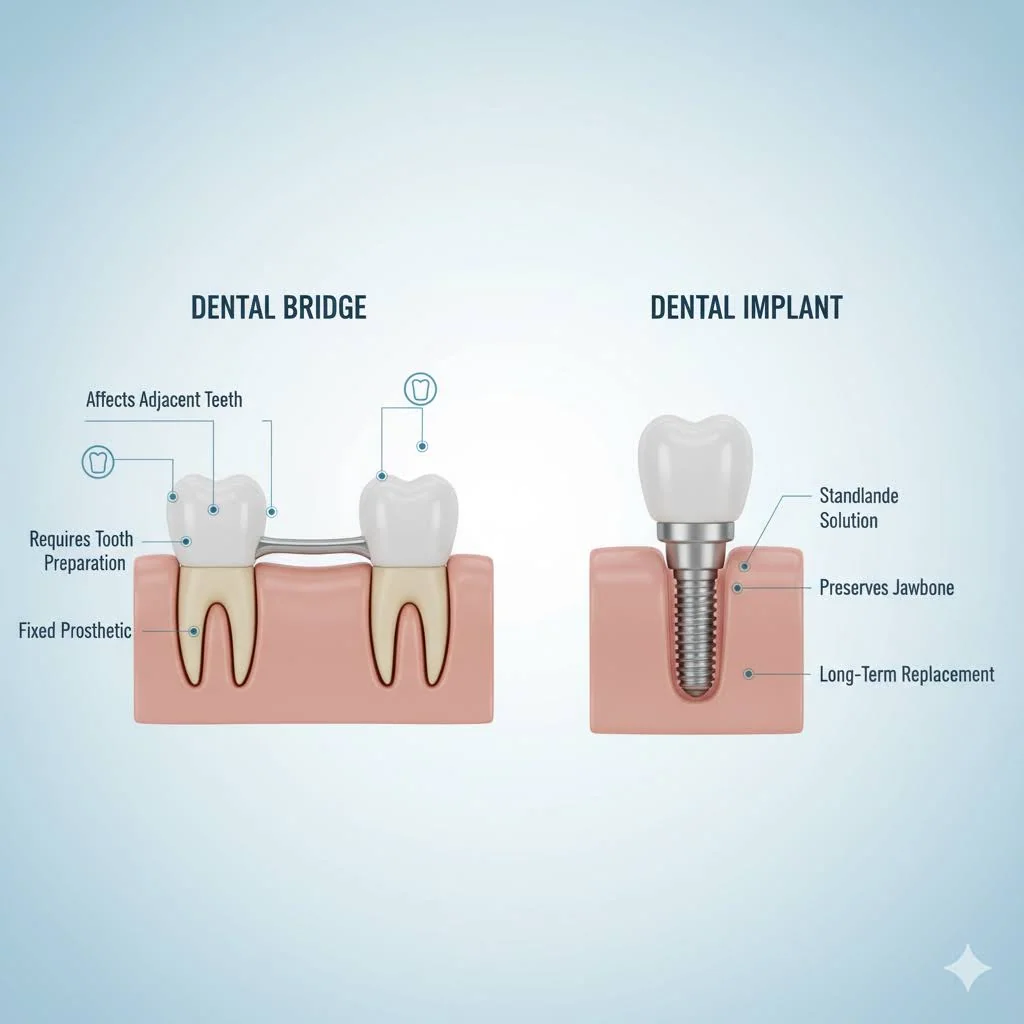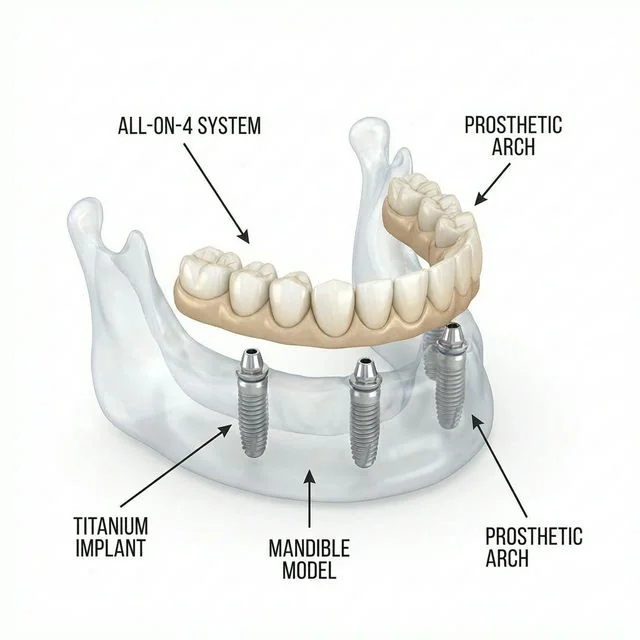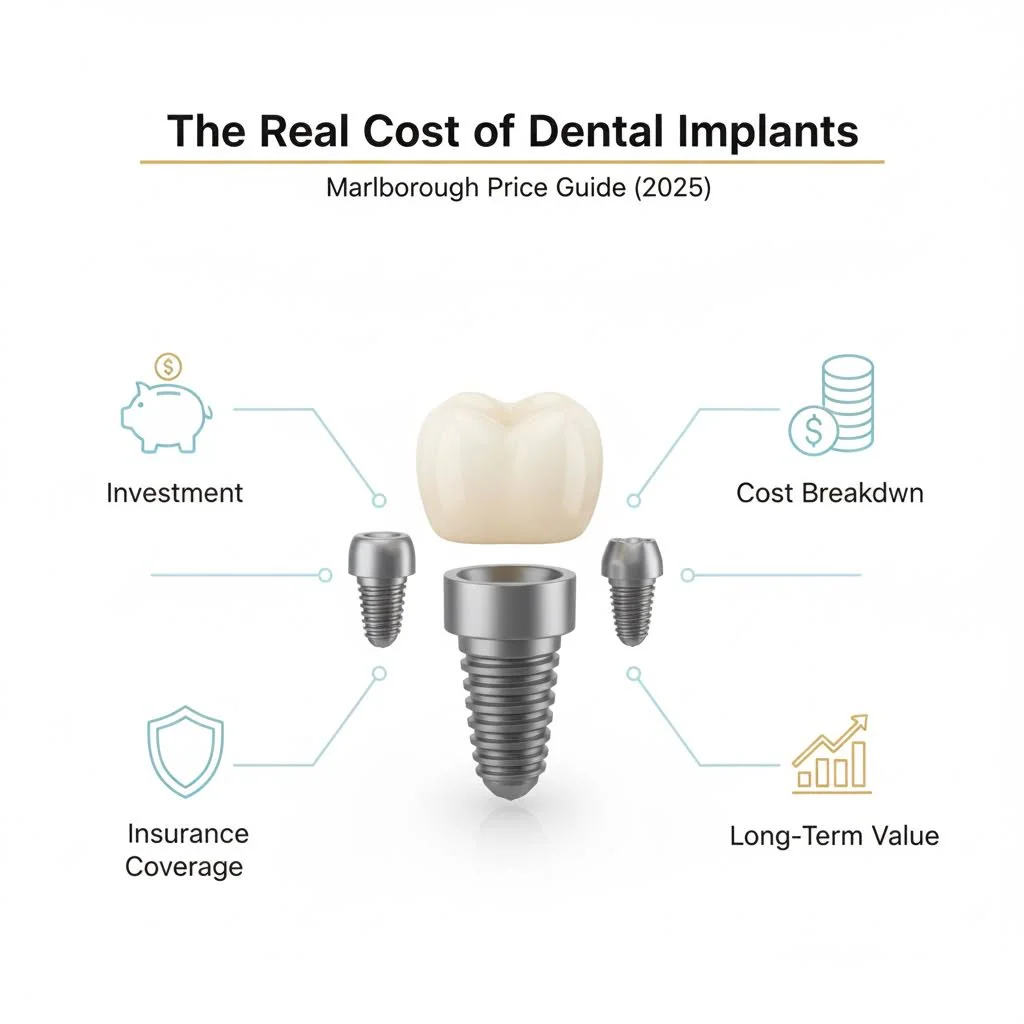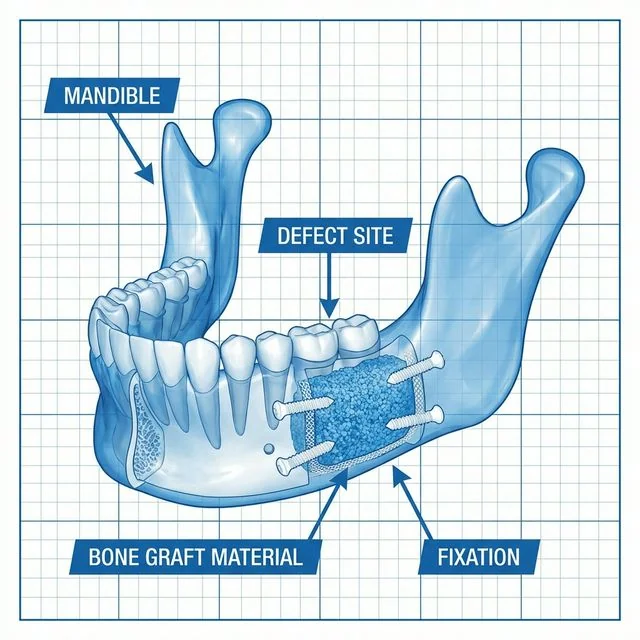Featured Answer: Which option is better—implant or bridge?
For a single missing tooth, a dental implant is often the healthier long‑term choice. It preserves bone, doesn’t require reshaping neighboring teeth, and can last decades with proper care. Bridges can be faster, but they rely on adjacent teeth and may need replacement sooner.
The Consequences of a Missing Tooth
Bone resorbs where a tooth is lost, nearby teeth can shift, and bite forces change—often creating new problems.
Dental Bridges: Pros and Cons
- Pros: Shorter timeline; no surgery; esthetic results possible.
- Cons: Requires shaping adjacent healthy teeth; does not replace the root; does not prevent bone loss; typically shorter lifespan than implants.
Dental Implants: Pros and Cons
- Pros: Preserves bone, protects adjacent teeth, excellent function and longevity.
- Cons: Surgical process; longer timeline; upfront cost can be higher.
E‑E‑A‑T: Dr. Fatima’s advanced training (FAAIP in prosthodontics, FICOI in implant surgery) supports precise planning for long‑term success and natural esthetics.
Cost‑Effectiveness Over Time
Bridges can have lower upfront fees but may require replacement. Implants protect the bite and neighboring teeth—frequently offering the best lifetime value.
Local Guidance for Marlborough & MetroWest
Many professionals along the I‑495 corridor prefer the stability and confidence implants provide for daily life, dining, and presentations.
Internal Links
- Learn about implant care → Dental Implants
- Explore restorations like crowns/bridges → Tooth Repair & Restoration
- Get personalized recommendations → Contact Us
Ready to compare your options with imaging and a written plan? Call (508) 481‑0110 or request a consultation.




